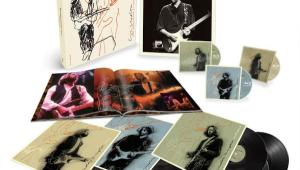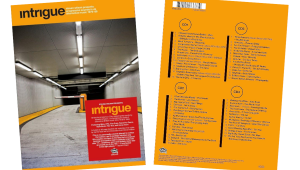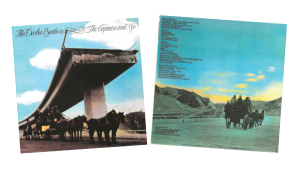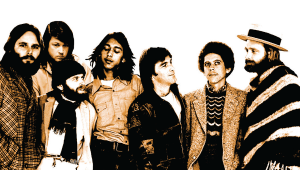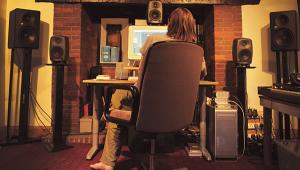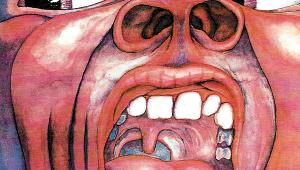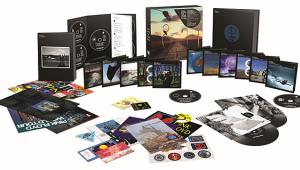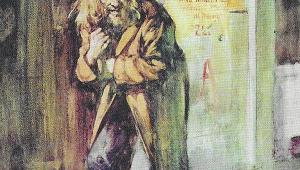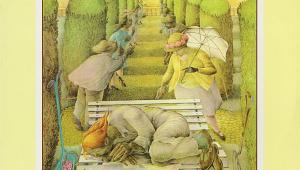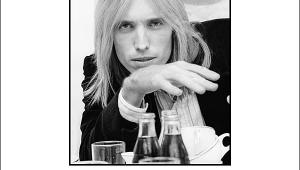The Allman Brothers: Trouble No More - 50th Anniv. Collection
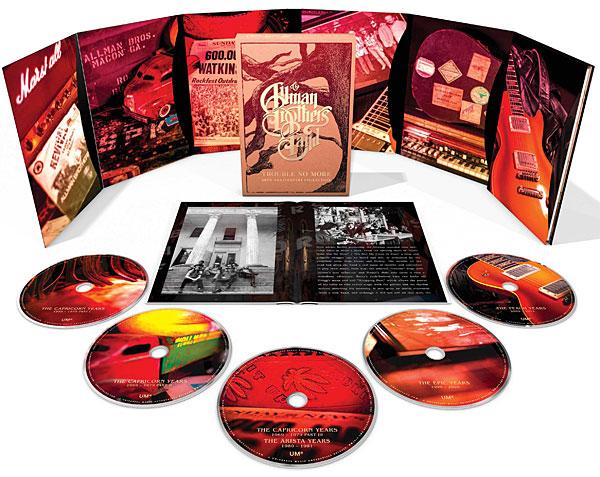
Though co-founding vocalist/keyboardist Gregg Allman passed away in May 2017, the ABB's storied legacy carries on with an impressive new box set, Trouble No More: 50th Anniversary Collection. It's a fitting addition to the ABB canon, serving as a shrewdly curated companion to their June 1989 4CD/6LP Dreams box set. Trouble No More comprises 61 tracks culled from the band's 45 years as an active recording/performing unit, spread out over five CDs nestled in a dark-brown fold-out 12-panel softpack protected by a snug, rawhide-tan slipcase. Naturally, 22 live tracks balance the proceedings alongside the myriad studio cuts and rarities, plus seven unreleased songs. The 88-page booklet contains an exhaustive 9.000-word essay from box set co-producer John Lynskey, plus scores of photos both seen and unseen. (As in-depth as Lynskey's liner notes truly are, I still would have liked to have gotten further insight from acclaimed, best-selling ABB historian Alan Paul, but that's a minor nitpick at best.)
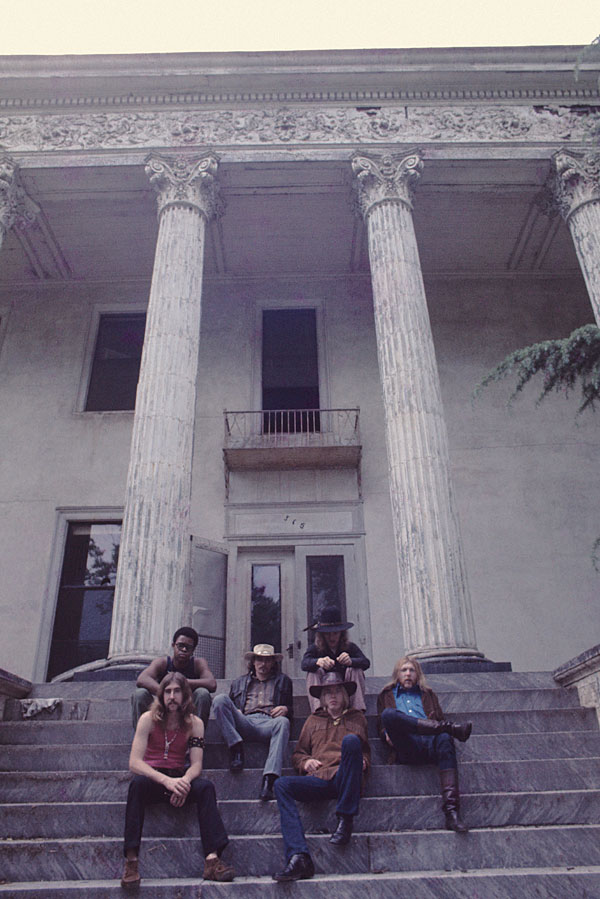
Incidentally, if you can swing the freight, the lavish, 180-gram black-vinyl 10LP Trouble box set—housed in a wood-veneer shell that might remind you of a lacquered office desktop from the '70s—is well worth the investment. (A limited-edition version of the vinyl box offers orange and red-splatter wax to evoke just the right "spin a peach" vibe.) Honestly, the bigger type is much easier to follow and the photos more impactful in the coffee table-friendly, 56-page 12x12 hardback format. Either way, UMe must take a bow for the top-shelf packaging and presentation of both highly collectible physical formats. (Being a true completist, I of course obtained both configurations for proper evaluation.)
Right off the bat, Disc 1 opens its barndoor on the band's prime Capricorn years by first presenting their unreleased demo cover of Muddy Waters' "Trouble No More" from April 1969. In just 3.5 minutes, the literal template for an entire genre's movement and purpose are laid bare. Gregg Allman's lead vocals show early signs of his eventual whiskey-tinged grit, with Duane Allman's slide-guitar responses intermingling intuitively with his younger brother's vocals and organ fills. Berry Oakley lays down a tight bass groove while drummers Butch Trucks and Jaimoe establish their own double-threat backline. True, Dickey Betts' lead guitar runs may be mixed too eagerly upfront here, but, hey, every band's gotta start somewhere. Other early-era gems on Disc 1 include the ever-trippy "Dreams" and the free-range ramble tamble of "Midnight Rider." Not only that, but a trio of live cuts culled from the legendary At Fillmore East ("Statesboro Blues," "Stormy Monday," and "In Memory of Elizabeth Reed") all steer the course of another tributary the Allmans helped forge—that of the extended improv jam that knows no limits when it comes to overall running time and the length of thematic explorations from each bandmember. In their own special way, the founding incarnation of the ABB are the Miles Davis Quintet of free-form rock.
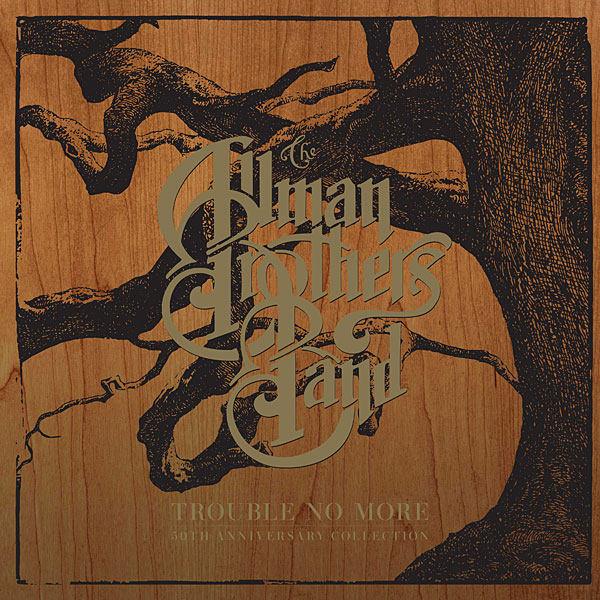
The prime Capricorn era continues on Disc 2 with scorching live takes of "You Don't Love Me/Soul Serenade" and "Hot 'Lanta." The more mournful tack of studio cuts like "Melissa" and "Blue Sky" signal how the ABB were equally adept at channeling their underlying sadness and melancholy into something more sonically beautiful.
Disc 3 covers the transitional timeframe when the band's Capricorn heyday gave way to the more muddled Arista years of the early '80s, despite the inclusion of a tasteful yet still volcanic 12-minute take on "Mountain Jam." Regrettably, the ABB briefly gave in to the sonic shift of the times with studio-sheened tracks like "Angeline," one that finds them leaning more towards feting a fashionista rather than admiring a Desdemona.
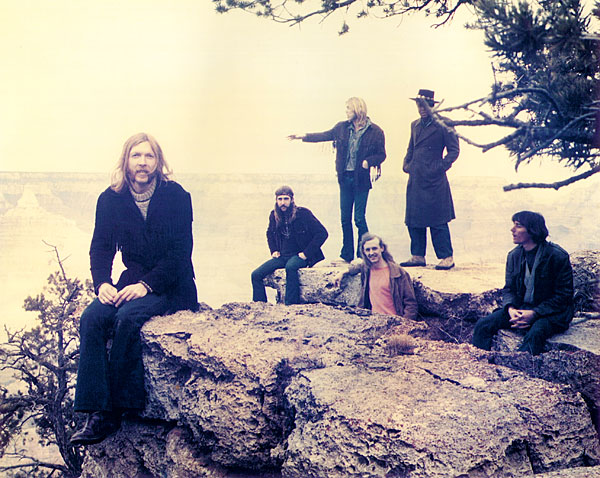
The ABB's latter-era revival is covered quite well on Disc 4, including Betts' wistful "Seven Turns" and Warren Haynes' uplifting "Soulshine." Finally, Disc 5 finds the ABB flying high after entering the 2000s, including a live 10-minute stab at "Loan Me a Dime" and the soaring "High Cost of Low Living." The box set closes out with the quite apropos "Trouble No More" live bookend taken from that aforementioned final October 2014 Beacon show, featuring the in-tandem twin-guitar mastery of Derek Trucks and Warren Haynes.
Such a skillfully compiled box set bodes well for further explorations of the ABB archives. (Best of the Beacon megadisc box set, anyone?) Trouble No More also shows that while the road may not go on forever for The Allman Brothers Band, their recorded heritage continues to endure long after they got to the end of the line.
CD (or LP)
Label: Mercury/UMe
Audio Formats: 16-bit/44.1kHz PCM Stereo (CD); 180-gram stereo vinyl (LP)
Number of Tracks: 61 on 5 CDs (or 10 LPs)
Length: 6:35:48
Producers: Bill Levenson, John Lynskey, Kirk West, Bert Holman (box set); Adrian Barber, Tom Dowd, Joel Dorn, Johnny Sandlin, Sam Whiteside, The Allman Brothers Band, 5 others (original studio & live recordings)
Engineers: Adrian Barber, Aaron Baron, Larry Dahlstrom, David Hewitt, Michael Barbiero, 20 more (original, live & archival recordings); Jason NeSmith (2019 mastering); April Golden (vinyl mastering)

